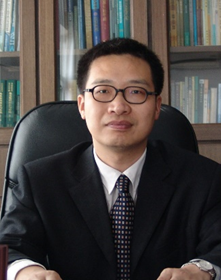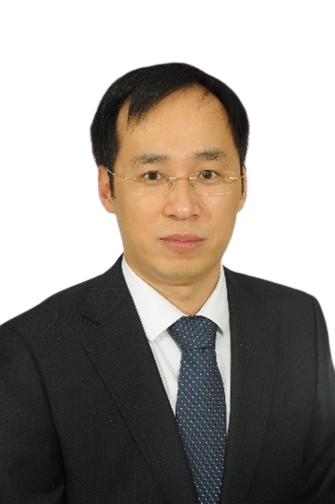
Speakers

Prof.Jun Teng
Harbin Institute of Technology (Shenzhen), China
Jun Teng, is a professor and doctoral supervisor at Harbin Institute of Technology (Shenzhen), the discipline leader of the School of Civil and Environmental Engineering, a recipient of the Special Government Allowance from the State Council, director of the Shenzhen Key Laboratory of Urban and Civil Engineering Disaster Prevention and Mitigation, and deputy director of the Guangdong Key Laboratory of Intelligent Resilient Civil Engineering Structures. Prof. Teng has participated in one Major Scientific Instrument Development Project, three Key Projects, and five General Projects funded by the National Natural Science Foundation of China (NSFC). Furthermore, Prof. Teng also leads one Key Topic under the National Science and Technology Support Plan and two Key Special Projects under the National R&D Plan, and participates in one Major International (China-US) Cooperative Research Project and one Innovative Research Group Project of the NSFC. He proposed a disaster-resistant structural system and design theory based on optimal failure modes, developed a comprehensive structural seismic analysis and evaluation platform, and established systematic theories, technologies, and methods for structural disaster monitoring and control. His achievements have been applied in major engineering projects, including the structural health monitoring system used in the National Aquatics Center ("Water Cube"), Shenzhen Civic Center, Vanke Center, Shenzhen Bay Sports Center, and Zhuhai Opera House, among dozens of other large-scale projects. His structural vibration control technologies have been implemented in more than ten supertall buildings such as Guangzhou Tower (600m), Shenzhen KK100 Tower (441.2m), Shenzhen Wutong Mountain TV Tower (198m), and Shenzhen Da Bai Hui Plaza (380m). Furthermore, his structural seismic design theories and methods have been applied to the performance-based seismic design of dozens of super-tall buildings. Prof. Teng also won lots of awards. He has received two Second-Class National Science and Technology Progress Awards, six First-Class Provincial and Ministerial Awards (three as first recipient), co-authored seven national standards, published two monographs funded by national grants (as first author), holds over 40 invention patents, and has published more than 350 papers indexed by SCI and EI.
Title: What Practical Engineering Problems Can Structural Health Monitoring Solve?

Prof. Junjie Zheng
Wuhan University, China
Junjie Zheng, PhD in Engineering, is a professor at Wuhan University and a doctoral supervisor. He is also a recipient of the National High-Level Talent Program. Currently, he serves as an executive director of the Foundation and Underground Engineering Branch of the China Architectural Society, an executive director of the Geotechnical and Geoengineering Branch of the China Civil Engineering Society, and sits on the editorial boards of several journals, including the Journal of Geoengineering, the Journal of Rock Mechanics and Engineering, and the journal of Geotechnical Mechanics.
He has engaged in teaching and research in the fields of geotechnical engineering, roadbed engineering, and tunnel engineering for a long time, publishing over 450 papers in domestic and international academic journals, with more than 240 indexed by SCI and EI. He has led eight key and general projects funded by the National Natural Science Foundation, as well as over 30 provincial and ministerial-level and industry-specific research projects. He has received eight First Prize and five Second Prize awards for scientific and technological advancement at the provincial and ministerial levels. He holds 40 authorized national patents and has seven software copyrights. Additionally, he independently authored one textbook and contributed to another. He has also participated in the development of five national, industry, and local standards.
Title: Several New Technologies in Roadbed Engineering

Prof.Zhechao Wang
Northeastern University, China
Zhechao Wang, a professor, serves as deputy director of the Institute of Deep Engineering and Intelligent Technology at Northeastern University, and director of the Liaoning Provincial Oil and Gas Underground Storage Engineering Research Center. He concurrently serves as the chairman of the Rock Engineering Design Methods Subdivision of the Chinese Society for Rock Mechanics & Engineering, and is an editorial board member of journals such as Acta Mechanica Sinica. Prof. Wang has been honored with awards including the Baosteel Outstanding Teacher Award and the title of Advanced Science and Technology Worker of Liaoning Province. His main research focuses on the theory and key technologies of underground energy storage. Addressing national energy security needs, Prof. Wang has led the research and development of key technologies for evaluating and controlling the sealing performance of underground energy storage reservoirs, which have been widely applied in the construction of national energy reserve bases. In response to the country’s dual carbon goals, he conducts fundamental theoretical and key technology research on ultra-high-pressure underground energy storage and geological carbon dioxide sequestration processes, promoting the engineering implementation of these technologies through demonstration projects. Furthermore, He has led and completed more than ten projects funded by the National Natural Science Foundation and provincial key programs, undertaken over twenty major engineering consulting projects, published more than 130 papers, authored three monographs, compiled over ten national, industry, and group standards, been granted more than twenty invention patents, and received three first-class provincial and ministerial science and technology progress awards.
Title: Research Progress on Sealing Performance Evaluation and Control of Groundwater-Sealed Cavern Reservoirs

Prof. Huafu Pei
Dalian University of Technology, China
Huafu Pei, a professor and doctoral supervisor at the School of Construction Engineering, Dalian University of Technology, obtained his master's and doctoral degrees from Harbin Institute of Technology and The Hong Kong Polytechnic University, respectively, and conducted postdoctoral research at The Hong Kong University of Science and Technology. Prof. Pei currently serves as the vice chairman of the Geological and Geotechnical Intelligent Monitoring Subdivision of the Chinese Society for Rock Mechanics & Engineering, deputy director of the Liaoning Key Laboratory of Engineering Disaster Prevention and Mitigation, and director of the Engineering Disaster Prevention, Mitigation and Emergency Management Center at Dalian University of Technology.
Prof. Pei has long been engaged in research on intelligent monitoring and disaster prevention in geotechnical engineering. He has developed multiple sets of novel sensing equipment suited for geotechnical engineering, which have been successfully applied in major projects such as the Beichuan debris flow, Beijing-Shanghai High-Speed Railway, Xuanji Expressway, and the Xinpu landslide at the Three Gorges of the Yangtze River. Furthermore, Prof. Pei also participated in many projects, such as one Excellent Young Scientists Fund project and three General Program projects from the National Natural Science Foundation of China, three subprojects under the National Key R&D Program, and five provincial and ministerial projects. He has received awards including the Outstanding Young Scientist Award from the International Association for Engineering Geology and the Environment (IAEG) and the Distinguished Young Alumni (Academic) Award from The Hong Kong Polytechnic University. He has published over 80 academic papers.
Title: Research on Large Deformation Monitoring Methods for Geotechnical Engineering Based on Multi-Sensor Technologies